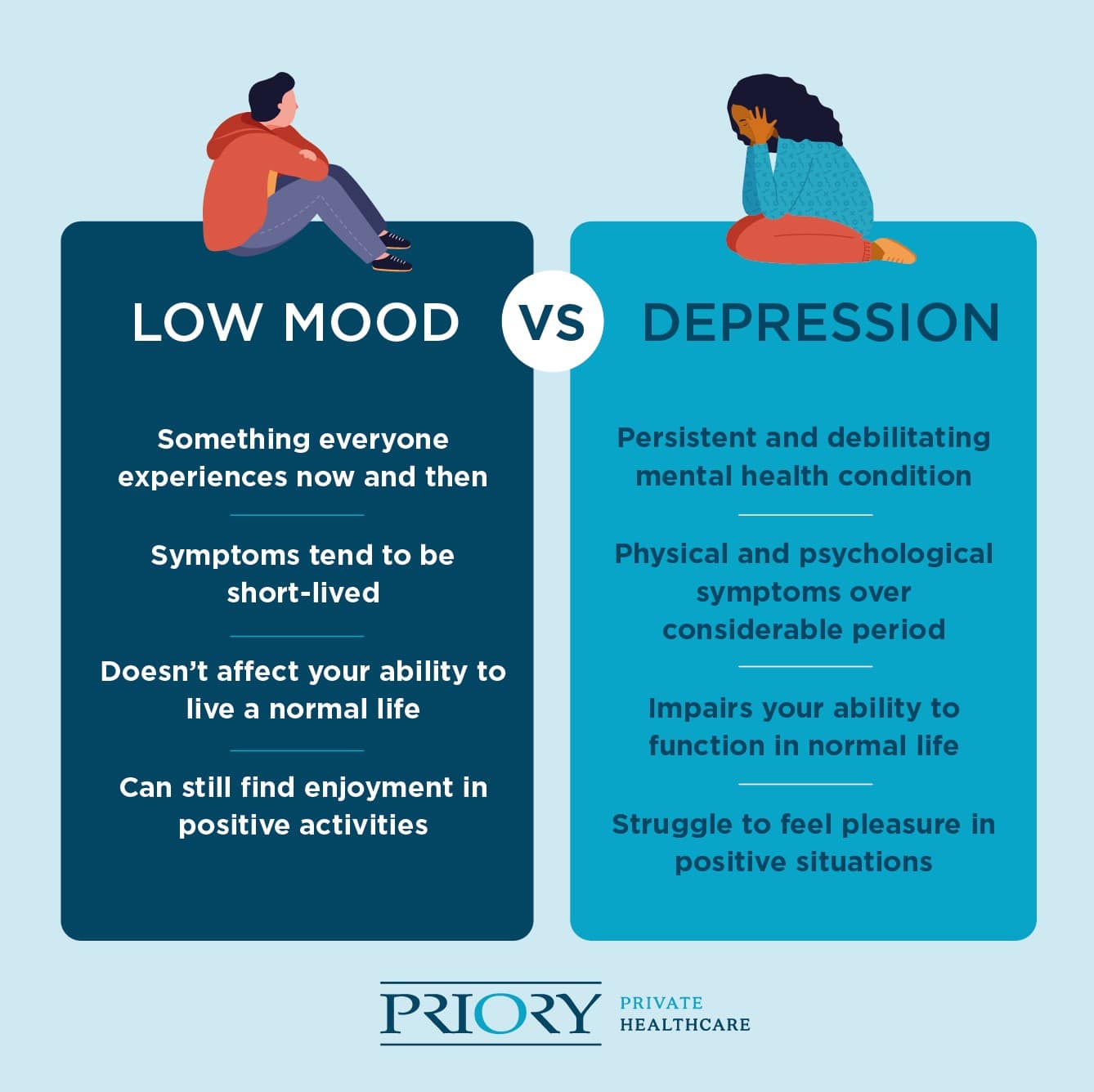Understanding low mood and how it differs from depression
Explaining the symptoms of low mood, how it differs from depression, and the things you can do to improve your mood.
Explaining the symptoms of low mood, how it differs from depression, and the things you can do to improve your mood.



Everyone experiences ups and downs in life. It’s important to try and understand why we might feel down from time-to-time and recognise when low mood might be something more serious.
In this article, we'll discuss what low mood is, its symptoms, and the differences between low mood and depression. We'll also provide tips for improving low mood, helping you to take steps towards a healthy future.
A low mood is a temporary feeling of sadness or unhappiness that everyone experiences every now and then. It's normal to feel down occasionally, particularly when you’re stressed or going through personal challenges, or disappointments.
A low mood usually only lasts for a short period of time and can be linked to a specific event or situation. Crucially, for it to be defined as low mood (as opposed to something more serious like depression), your feelings of sadness will soon pass.
Common causes of low mood can include:
What does low mood feel like? A low mood can share some of the symptoms of depression, such as:
However, unlike depression, these symptoms only persist for a short period of time.
It's important to be able to recognise and understand some potential causes of your low mood, as well as the symptoms to look out for. Understanding your emotions can help you to manage your general wellbeing. This means you can take steps to improve your mood if you’re ever feeling low.
While low mood and depression share many of the same symptoms, and can be caused by many of the same factors, there are key differences between the two.
The main distinction is how long the symptoms last for and how severe they are. A low mood tends to be quite short-lived and less severe than depression, while depression is a more persistent and debilitating mental health condition.
The impact that depression and low mood have on your daily life differs too. Low mood doesn’t generally affect your ability to carry out your daily tasks and responsibilities. However, depression can impair your ability to function in lots of different areas of your life, such as work, school or relationships.
Your behaviour will be fundamentally different too. With a low mood, you should still be able to find enjoyment in positive events or activities. People with depression may struggle to feel pleasure even in situations or activities they previously enjoyed.

The good news is that you can take steps to improve your low mood. These can include:
At Priory, we're dedicated to helping you improve your mental health and wellbeing. If you're experiencing low mood or depression, our compassionate and expert team is here to support you on your journey towards a healthy, fulfilling future. We offer high-quality treatment for mental health, helping you to get back on track.
Remember, you don't have to face these challenges alone – we're here to help you live your life to the fullest. Get in touch with us today to find out how we can support your mental health.
For details of how Priory can provide you with assistance regarding mental health and wellbeing, please call 0330 056 6020 or submit an online enquiry form here.
